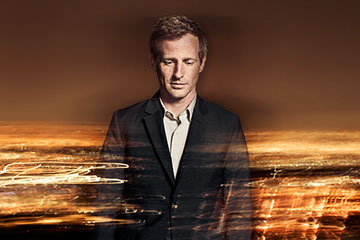
(4 of 4)
I ask Jonze about the minute of dark screen in Her, which I just spoiled for you. It occurs during a sex scene between man and operating system, which, despite my description, is not at all funny. It's the first time I've ever seen the screen go black for that long, maybe more than a minute, and I'm sitting there with my friend with nothing to look at, uncomfortable, listening to Johansson do a When Harry Met Sally that would have really freaked out Katz's Deli. The blackout wasn't written in the script but was added during editing. "I don't think any of us knew until we watched it with the audience fully what it would be," Jonze says. "I got really giddy when it got to that part." It's like a little bit of the trickster emerged. Then he went back to his veggie burrito and wondered if his pescatarianism is based on a lame moral justification that fish are dumb.
I ask him about the film's vision of the near future. It's the most believable depiction of the future I've seen in a movie. No stupid white genderless unitards. Instead, it's Steve Jobs' reimagining of hipsterdom, with a 1920s revival of mustaches, superhigh-waisted pants, bespoke furniture and names like Theodore. When a set designer asked Jonze if the film is set in a dystopia or a utopia, he paused before going with the latter. But that's not quite right. It's pleasant, and people are unfailingly nice. But they're disconnected, talking to their earpieces, looking at screens and having conversations with anonymous Internet users. It's shot in sunny Los Angeles with gleaming new Shanghai-style construction superimposed on downtown. Too kind to enforce his own rule about lazy questions, Jonze says, "Everything is getting nicer every year--all the design, the food, the coffee. Everything is easy now. You don't get lost anymore. It's that idea of a utopian future that is also full of isolation and loneliness in all this niceness."
And then Spiegel asks me a question. He wants to know if I cried when I saw the movie. I didn't, which I feel bad about. I ask him what part he was hoping I cried at. "Depending on what's going on in someone's relationship, there's different points," he says. "Like the divorce papers." My arms, I appreciate for the first time in my life, are indeed long. As I exit this huge, quiet house, sad to leave him, unable to tell him I can't accept the cool Her hoodie the skateboard company he co-owns has designed, I go to use my long arms to text my wife that I'm coming home. Instead, I just use them to drive home.
